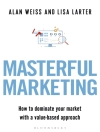While dating from post-Classical economists such as Thorstein Veblen and Joseph Schumpeter, the inception of the modern field of evolutionary economics is usually dated to the early 1980s. Broadly speaking, evolutionary economics sees the economy as undergoing continual, evolutionary change. Evolutionary change indicates that these changes were not planned, but rather were the result of innovations and selection processes. These often involved winners and losers, but most importantly, they resulted in actors learning what was and was not working.Evolutionary economics, in contrast to mainstream economics, emphasises the relevance of variables such as technology, institutions, decision rules, routines, or consumer preferences for explaining the complex evolutionary changes in the economy. In so doing, evolutionary economics significantly broadens the scope of economic analysis, and sheds new light on key concepts and issues of the discipline.This handbook draws on a stellar cast list of international contributors, ranging from the founders of the field to the newest voices. The volume explores the current state of the art in the field of evolutionary economics at the levels of the micro (e.g. firms and households), meso (e.g. industries and institutions), and macro (e.g. economic policy, structure, and growth).Overall, the Routledge Handbook of Evolutionary Economics provides an excellent overview of current trends and issues in this rapidly developing field.
Kurt Dopfer & Richard R Nelson
Routledge Handbook of Evolutionary Economics [PDF ebook]
Routledge Handbook of Evolutionary Economics [PDF ebook]
Купите эту электронную книгу и получите еще одну БЕСПЛАТНО!
язык английский ● Формат PDF ● страницы 476 ● ISBN 9780429677724 ● редактор Kurt Dopfer & Richard R Nelson ● издатель Taylor and Francis ● опубликованный 2023 ● Загружаемые 3 раз ● валюта EUR ● Код товара 9189389 ● Защита от копирования Adobe DRM
Требуется устройство для чтения электронных книг с поддержкой DRM












